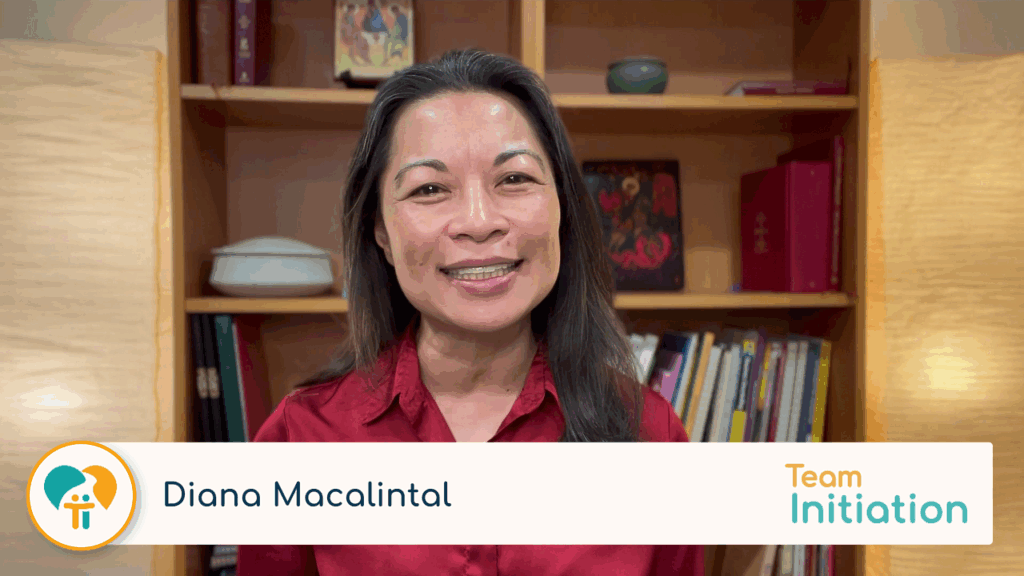 Sometimes talk about the RCIA process falls prey to generalizations based on “well, at my parish” or “everybody says.” It’s a good thing to balance one’s personal experience or hearsay with some objective information.
Sometimes talk about the RCIA process falls prey to generalizations based on “well, at my parish” or “everybody says.” It’s a good thing to balance one’s personal experience or hearsay with some objective information.
If you haven’t already read the U.S. Bishops’ study on the implementation of the RCIA, Journey to the Fullness of Life, published in 2001 by the USCCB, I highly recommend that you do so. The study offers hard data and the “big picture” plus a lot of good specific commentary from various departments of the bishops’ conference, as well as survey responses from diocesan directors, bishops and others concerned with implementation.
The RCIA is doing well
So, how’s it going? Well, there is always room for improvement, but the study shows that the RCIA overall is doing well. One item that may be of particular interest is the question of what happens to the folks after the process. Do we “lose them” after initiation? The data show that retention levels (measured by Mass attendance) and involvement levels (measured by engagement in parish ministries and committees) are higher for the RCIA than they are for any other sacramental preparation process in the church today. There are some who fall away, of course, but most stay and become active in their parishes.
Many other issues are discussed too, such as the length of the process, how many parishes use the process with children (here is an area where much improvement is needed), and how to honor ecumenical sensitivities. Every RCIA coordinator could benefit from reading this study.
If you are hungry for some “micro-sociology” on the other hand, you could take a look at a book from Liturgical Press that presents an in-depth view of some specific parish processes. Sociologists David Yamane and Sarah MacMillen, with Kelly Culver, produced a study concerning the implementation of the RCIA in five parishes in Indiana. It was published in 2006, under the title Real Stories of Christian Initiation: Lessons for and from the RCIA.
It’s only five parishes, and yes, they are all in the Diocese of Fort Wayne-South Bend, Indiana (not perhaps your idea of typical), but a lot of common problems and issues come up. The names have been changed of course, but the strength of the study lies in the wealth of specific detail. The researchers spent hundreds of hours listening to what went on in sessions, observing interactions, and talking to the individuals involved.
Hard work matters; money doesn’t
The authors’ conclusions at the end of the book are interesting. The first “lesson” they offer is that “implementation matters.” When faced with all the work that is necessary to do the process fully, people ask: “Is it worth it?” The answer the authors give is an emphatic Yes-not based on sheer idealism, but on what they observed to actually work. In fact, I’d like to see more of the data they referenced in a footnote about correlation between individual spiritual growth and the more fully-implemented communal process.
The second “lesson” was about what they call “human capital.” Money didn’t matter that much. People did. The success of the process is in direct proportion to the number of people involved. Hmmm. Start building that team!
There’s lots more. You can read excerpts of the book for yourself online, and you can purchase the full study from the TeamRCIA resources page.
Just a footnote: I was on a panel of readers that responded to the study in a small conference held at Notre Dame University before the book was published. Each of us had to comment on a single parish described in the study. I was assigned to comment on “St. Mark’s” parish. You can read my comments here, if you are interested.


















We are looking for ways to increase our team size so we can go all year round. The above books look like they might help with that.
Follow you on Twitter, Love the website & thanks for the help.
I really enjoyed your comments on St. Mark’s parish. Each year, I evaluate the shape of the RCIA at Sacred Heart and although I can point to positive movement in the right direction, I feel so overwhelmed.
I wonder if everyone has the same problem that we have at Sacred Heart- lack of interest or involvement by parishioners and priests? I have tried to make regular pulpit announcements, weekly updates in the bulletin and personal invitation, but I am at a loss for how to draw parishioners (or the priests) into this process. The Inquirers, Catechumens and Candidates WANT so much to become a part of the community. I can’t even get anyone to invite them to their home for dinner! They attend parish potlucks and other community events, but even if I drag parishioners over to them who have some similarities (age, interests etc) they politely say hello and walk away!
Ok, now I’m just complaining. I know that there have been a lot of improvements in the past three years but I want more!
Thanks for listening!
Hi Jason,
You might also check out Year-Round Catechumenate by Mary Birmingham.
And these posts: Is a complete catechumenate possible with a small team?
The team you need for a year-round RCIA
Michele, thanks for your comments, which I bet a lot of people could identify with. It can be a huge challenge, and you are not alone.
The two aspects of the challenge that I hear in your story are related: #1 the priests need to be drawn in more, and #2 the parishioners need to be more welcoming.
The priests set the tone for the parish, and welcoming and hospitality need to be modeled and valued by them. Talk to your priests. Ask them to preach on hospitality. Seek their help in building an evangelizing parish. Ask them to speak about how initiation is the ministry of all the baptized. Invite them to a session to listen to the stories, not just to teach. And then pray that a spark gets ignited.
With regard to the people of your parish, it sounds like this is just unfamiliar territory for them. Since your process has been going for three years, perhaps the people who were part of it in years past would be your most natural allies. A personal touch could remind them to reach out to the newcomers, and perhaps to share their own story.
Second, see if there are structures in the parish that will work for you. For example, church societies and parish groups can be enlisted to pray for people by name. Then, when they meet them, it’s “Oh, yes, I’ve been praying for you!” Sometimes groups of children in catechetical programs will prepare cards or messages of welcome for newcomers. Talk to your Director of Religious Ed. When children learn something, their parents will probably hear about it too. It can be an ice-breaker. Every little bit helps.
Finally, relax and realize it’s not all up to you. It takes time to develop a culture of welcome in a parish. As you know!
Any other good ideas for Michele out there? Send them in. God bless your efforts, Michele!
Rita
Hi Jason,
Good to hear that you are planning to develop your team. I once talked with a parish catechumenate director at a large parish that had more than 20 people on the RCIA team. I asked him “How did you do that?”
He said “Delegate, delegate, delegate. I make sure they understand the big picture and then I put people in charge of specific things. Often they don’t do it the way I would do it, but that’s OK. The main thing is that they own it.”
I think there is wisdom in this approach. When you are enlarging your team, keep in mind too that you’ll need many different gifts; it’s not limited to catechists. Get a communications coordinator. Find somebody to oversee the apostolic works component. Get somebody to coordinate sponsors. And so on. Good luck to you!
Rita